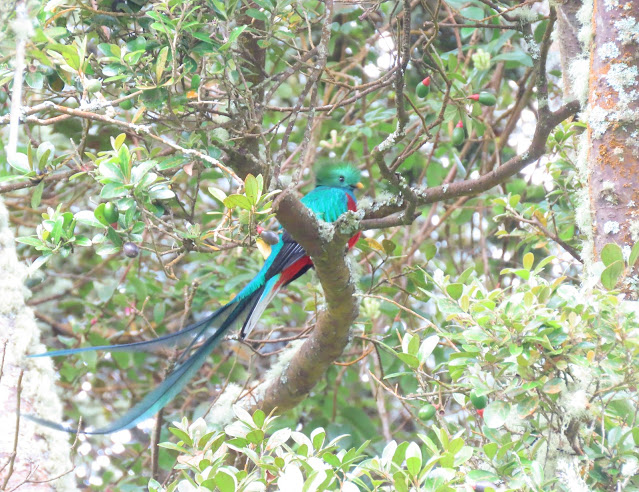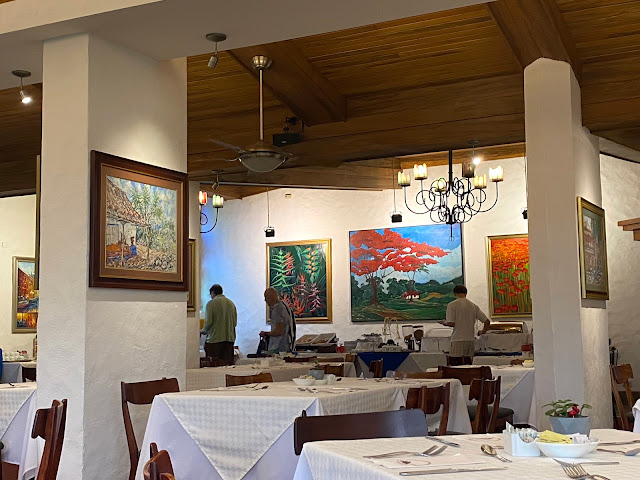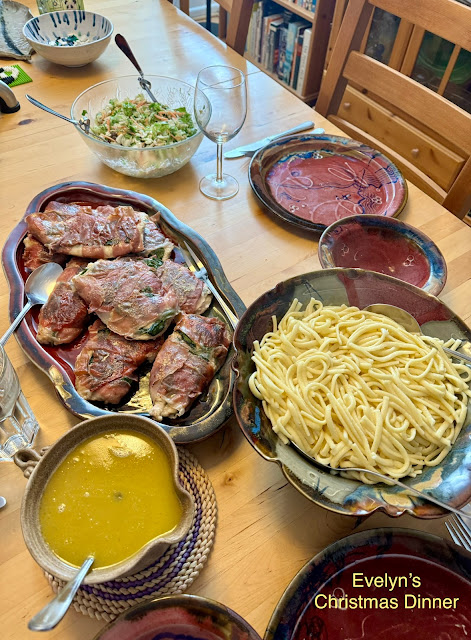Dwight Garner, a book critic, has given us a rather strange book titled The Upstairs Delicatessen: on Eating, Reading, Reading about Eating & Eating while Reading. This account treats his two favorite pastimes: eating mindlessly and unceasingly without reflection, and reading about food. He endlessly quotes little phrases and sentences about food from famous writers, modern writers, fiction writers, narrative writers, old and new writers, trendy and unfashionable writers, song writers, pop culture writers, and more. Reading it is a bit of a blur. But the essence is: he loves to eat and he doesn't think about it much.
A quote from Dwight Garner:
"Salty, fatty, crispy, and spicy: the basic food groups, essential building blocks for happiness, more all-American than apple pie. Lunch is when I eat fast food, when I do. This is Americana, democracy in a paper wrapper. It makes sense that Evel Knievel’s first audiences were the diners outside at an A&W drive-in, when you ordered from a carhop instead of via a dented speaker. Maybe Jack and Diane, from the John Mellencamp song, were there, instead of sucking on chili dogs outside the Tastee Freez. “Tastee Freez in Fiction” will not be on a college syllabus anytime soon. Yet the characters in S. A. Cosby’s superb Southern crime novels are obsessive about Tastee Freez double chocolate milkshakes. Chuck Klosterman, in Fargo Rock City, is a student of cheap thrills. “Listening to Van Halen is like having the best sex of your life with three foxy nursing students you met at a Tastee Freez,” he wrote. On the other hand, listening to Eric Clapton is like “getting a sensual massage from a woman you’ve loved for the past ten years.” Eve Babitz saw things similarly. “The Byrds and the Beach Boys and the Mamas and the Papas,” she wrote, “all sounded as though they came out of a Frostie Freeze machine pipe organ.” (Dwight Garner, The Upstairs Delicatessen: On Eating, Reading, Reading About Eating, and Eating While Reading p. 82).
In contrast, Michael Moss, in Hooked: Food, Free Will, and How the Food Giants Exploit our Addictions, writes in a journalistic, systematic way. He systematically explores the science and neuroscience of food memories, including rather detailed descriptions of how the brain processes desires, cravings, reactions, and memories of food, and how the combination of sugar and fat and salt (that's the combination referred to in the quote above) is an irresistible trigger for many brains.
Hooked offers a very interesting and unexpected connection to Garner's much more disparate and vaguely disorganized thoughts. The same core questions appear in both books: what is food to a human mind? What is it like to eat mindlessly while doing other things, like reading. What is your brain doing and how are you driven to act like Garner when he spends the afternoon scarfing snacks while reading library books? What triggers our food obsessions or additions or just cravings?
The two books seem to be a random juxtaposition of two ways to see, by authors with very different methods of probing some of the same ideas. I happened to read them together for no particular reason.

A quote from Michael Moss:
"When we eat with purpose and deliberation, giving some thought to the preparation and consumption of food, the hippocampus gets engaged. It helps keep the go brain from getting us in trouble. Slowing down and chewing our food leisurely allows the hippocampus to absorb the information from that eating experience and to learn. ... By contrast, when we do things by rote, or by habit, as in eating a candy bar while staring at a computer, this mode of eating shows up in a part of the brain called the striatum, Latin for striped, because it has bands of white and gray matter... new research has connected it with our behavior in response to stimulus. In the striatum, we are reacting to inducements, like the sight or smell or memory of candy, without applying the kind of oversight that can put the brakes on a bad decision. When we file information away in the striatum, it creates what scientists have dubbed habit memory." (Michael Moss, Hooked: Food, Free Will, and How the Food Giants Exploit Our Addictions, p. 63).
I guess you could get all philosophical about this, but I won't.
Review © 2023 mae sander































































